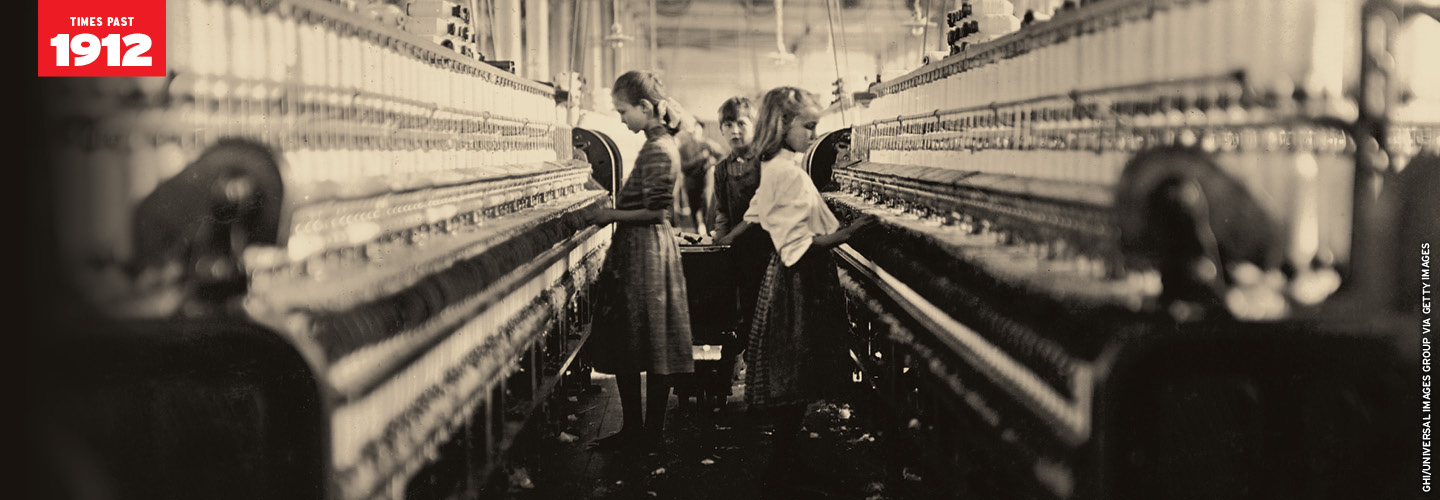Camella Teoli’s life changed forever in a split second. It happened late in the afternoon on a July day in 1909. The 12-year-old factory worker had been on her feet for hours changing spools of thread on mechanical looms that spun wool into fabric.
All day, she’d had to keep her long hair pinned up around the machinery’s whirring belts, gears, and rollers. Finally, tired and uncomfortable, Camella let her hair down. She turned—and suddenly, a spinning roller yanked the end of her brown locks. Before she could even cry out, her hair was sucked into the enormous loom.
Like many of the other mill workers at the Washington Mill in Lawrence, Massachusetts, Camella had risen before dawn to get to work by 6 a.m. Hour after hour, the noise of the factory machinery had assaulted her ears. The air in the building was thick with fibers from the fabric being spun there—and she would draw them in with each breath, irritating her lungs.
The work was exhausting and tedious. Sometimes Camella’s thoughts would drift longingly to her time in school. Earlier that year, she’d had to drop out of sixth grade so she could work. Her family was poor and depended on her small wages to survive. But Camella couldn’t daydream for more than a moment or two; she had to keep up with the machines, which never stopped. If she didn’t, she would be fired. Worse, the looms had no protective guardrails. Making a mistake around them could be dangerous.
Camella Teoli’s life changed forever in a split second. It happened late in the afternoon on a July day in 1909. The 12-year-old factory worker had been on her feet for hours. She had spent the time changing spools of thread on mechanical looms that spun wool into fabric.
All day, she’d had to keep her long hair pinned up around the machinery’s whirring belts, gears, and rollers. Finally, tired and uncomfortable, Camella let her hair down. She made a turn. Suddenly, a spinning roller yanked the end of her brown locks. Before she could even cry out, her hair was sucked into the loom.
Like many of the other mill workers at the Washington Mill in Lawrence, Massachusetts, Camella had risen before dawn to get to work by 6 a.m. Hour after hour, the noise of the factory machinery had slammed against her ears. The air in the building was thick with fibers from the fabric being spun there. She would inhale the fibers with each breath, irritating her lungs.
The work was exhausting and boring. Sometimes Camella would start daydreaming about her time in school. Earlier that year, she’d had to drop out of sixth grade so she could work. Her family was poor and depended on her small wages to survive. But Camella couldn’t drift off for more than a moment or two; she had to keep up with the machines, which never stopped. If she didn’t, she would be fired. Worse, the looms had no protective guardrails. Making a mistake around them could be dangerous.

